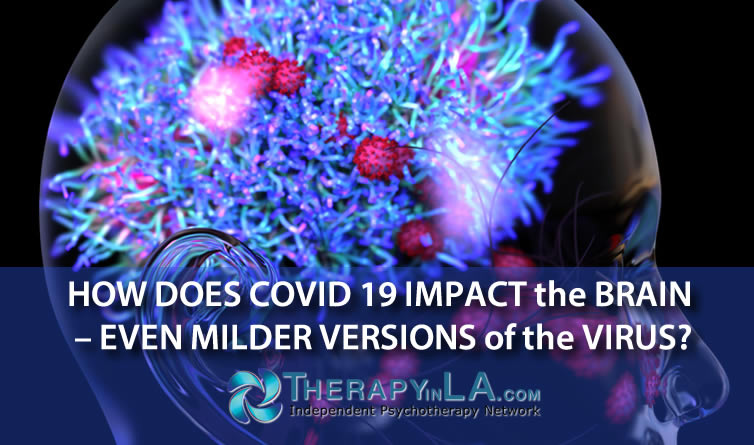HOW DOES COVID 19 IMPACT the BRAIN – EVEN MILDER VERSIONS of the VIRUS?
HOW DOES COVID 19 IMPACT the BRAIN – EVEN MILDER VERSIONS of the VIRUS?
By Alan M. Solomon, Ph.D.
A British study revealed significant brain “abnormalities” as a result of COVID 19 infection ( https://www.nbcnews.com/health/health-news/long-covid-even-mild-covid-linked-damage-brain-months-infection-rcna18959 ). A sample of 785 patients, ages between 51 and 81 years old, had brain scans twice. Of this total, 401 had tested positive for COVID between the scans, while 384 had the two scans with no illness between them. Of the 401 ill with COVID, 15 were hospitalized for more severe forms of the illness and they were taken out of the sample. This left 386 who had experienced milder versions of the virus. The second scans were done an average of 141 days after the diagnosis of COVID, which implies that sufficient time had elapsed for recovery from the virus.
The findings included:
- Tissue damage in areas related to sensory perceptions and memory.
- Tissue damage in regions related to sense of smell.
- Reduction in overall brain size.
- Reduced overall cognitive functioning.
Since COVID often invades the body through the nose, the disease may spread via the olfactory pathways related to the sense of smell. It may also be due to inflammation in the brain, or the loss of sensory input since many people experience a loss of the sense of smell.
The long-term effects of this neurological impact are not yet known, so it is possible that these effects are reversible. The age of the participants is also somewhat limited, so that the impact of COVID on younger adults is yet not documented. However, it seems safe to say that for older adults in their 50’s and beyond, COVID is no mere influenza in its impact on our brains.
Alan M. Solomon, Ph.D., is a clinical psychologist in private practice in Torrance, CA. A member of the Independent Psychotherapy Network, he can be reached at 310 539-2772 or dralanms@gmail.com. Telehealth or in-person sessions are available.
Copyright 2022 by Alan M. Solomon, Ph.D.

